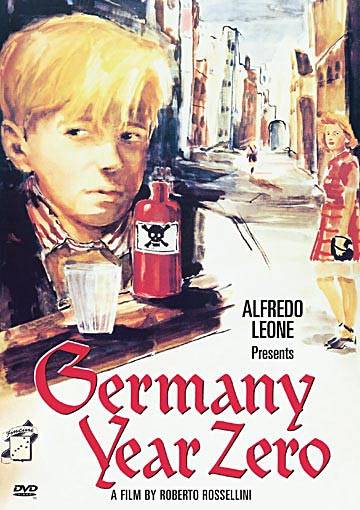This movie is all about desperation.
It focuses on a family eking out an existence in post World War II Berlin.
The main character, Edmund, is 13 years old and does what he can to help the family get by.
It appears the film was shot entirely on location in rubble-strewn Berlin where people wait in lines for rations.
It is a bleak existence to say the least.
[kml_flashembed movie="http://www.youtube.com/v/GAXAlyVkpok" width="425" height="350" wmode="transparent" /]In one scene, Edmund tries to sell a record of a speech by Adolf Hitler that he received from a former teacher and Nazi sympathizer. In that scene, the camera pans over the ruins of the city as the viewer hears the words of Hitler, who promises great things for Germany.
The teacher also has a profound effect on Edmund and fills him with Nazi ideals and social Darwinism.
In another scene, Edmund tries to play a pickup game of soccer in the street but the children don’t want to have anything to do with him. It is a poignant scene about lost youth, about how once certain actions are taken, there’s no way back.

One of the questions wrestled with in this movie is the culpability of former German soldiers. Edmund’s older brother, Karl-Heinz, fought to the bitter end at the closing of the war and hides out in the house because he is afraid to implicate himself in the eyes of the occupying forces.
This film clearly shows the despair of the defeated and the terrible price paid by people who are caught up in wartime.
“Germany Year Zero” is available to rent.
Murphy can be reached at: [email protected]